Afternoon Edition |
July 21, 2025 |
|
|
President Donald Trump’s push to force the Commanders back to their old name will face some local roadblocks, as the president’s power over Washington’s $3.8 billion stadium deal is more limited than he suggests.
—Eric Fisher and David Rumsey
|
|
|
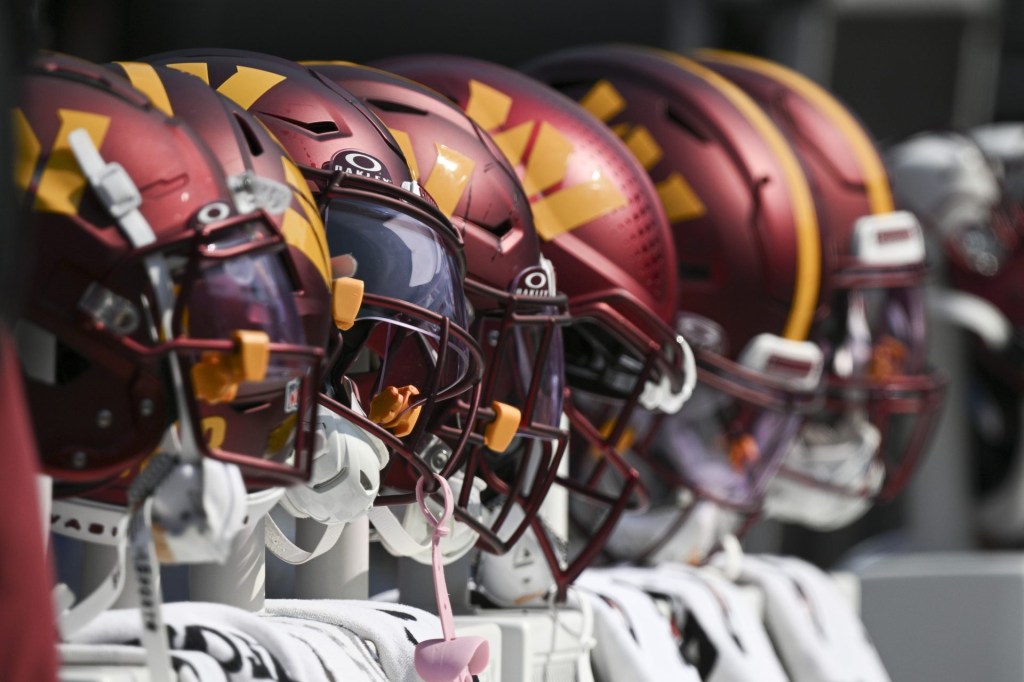
|
Tommy Gilligan-Imagn Images
|
U.S. President Donald Trump doesn’t have the extent of power over the Commanders’ proposed $3.8 billion stadium deal with the District of Columbia that he thinks he does.
Trump made significant waves Sunday, again demanding the Commanders revert to their prior name and threatening to “put a restriction on them” if they don’t do so. While the office of the president and Trump’s outspoken nature certainly carry the power of bully pulpit, his legislative pathways to interfere with the potential stadium deal at the site of RFK Stadium are generally limited, particularly as it is now essentially a local issue.
Among the avenues potentially at his disposal:
- Revising the D.C. budget: This would be the primary means for Trump to get involved. In the complex nature of D.C. local governance and existing Home Rule provisions, local residents elect a mayor and council members, but the budget remains subject to congressional oversight. The situation historically has been the subject of political friction, with federal officials who do not represent D.C. often exerting outsized control over another set of constituents. To that end, the current proposed D.C. budget includes a series of cuts championed by Republicans in the House of Representatives. In this situation, one potential countermove would be to delay public disbursements for the stadium project until after next year’s midterm elections, when Democrats are expected to regain control of the House.
- Rescinding the transfer of control of the RFK Stadium property: The deal between the Commanders and D.C. happened only after the federal government ceded control of the land where the team previously played. There is a reversion provision in the act, should D.C. fail to redevelop the stadium property. That provision, however, requires Interior Secretary Doug Burgum to provide written notice to D.C. officials and give them 90 days to correct the stated areas of non-compliance.
- Developing another bill to undo the prior RFK one: Another option would be to pass another bill undoing the transfer of the RFK property, which could prompt legal challenges. Such a move would also pass back through the House Committee for Oversight and Government Reform, which championed the original legislation—so much so that committee chair Rep. James Comer (R., Ky.) wrote the D.C. Council last week to demand a vote on the stadium deal before a scheduled August recess.
- Lobbying individual D.C. Council members: As the stadium bill still holds uncertain support within the D.C. Council, a more conventional political path would be for Trump and his allies to lobby individual members and push for a vote to defeat the measure. There are no Republicans, however, on the council, which is made up of 11 Democrats and two Independents.
- Leveraging regulatory oversight: Trump has supporters on the National Capital Planning Commission and the Commission of Fine Arts, two bodies that would have oversight roles in the stadium project, particularly around design. Those bodies, however, would not enter the situation until after the council.
- Undoing D.C. Home Rule entirely: This would be the most radical option, but one that’s already been proposed. Amid longstanding friction between Trump and D.C. Mayor Muriel Bowser, two Trump allies in February proposed the Bringing Oversight to Washington and Safety to Every Resident (BOWSER) ACT, undoing much of the existing Home Rule provisions. That legislation, however, has not moved out of committee in either the House or the Senate.
Trump, who in 2013 criticized then–U.S. President Barack Obama for pushing the team to change its name, historically has shown little regard for established legislative norms. He also feels a greater ability to unilaterally shape matters after situations like the one with CBS Sports parent Paramount Global, which recently agreed to a $16 million legal settlement with the president, despite claims from Trump widely deemed to be specious.
Sports team name changes, meanwhile, are typically lengthy, cumbersome, and costly processes. Ones for the Commanders and Guardians each happened only after years of consideration, lobbying from multiple groups, cooperation from league officials, and millions of dollars spent. In the meantime, the council has scheduled two days of hearings next week related to the stadium proposal.
“I am focused on getting the best deal for District taxpayers and getting the deal across the finish line,” said council chair Phil Mendelson in response to a Front Office Sports inquiry. “I have heard from no—zero—District residents complaining about the name change [to Commanders] or saying this is an issue in connection with the stadium.”
Bowser, meanwhile, said Monday she would not withdraw support for the new stadium should the Commanders’ former name return.
|
|
|
|
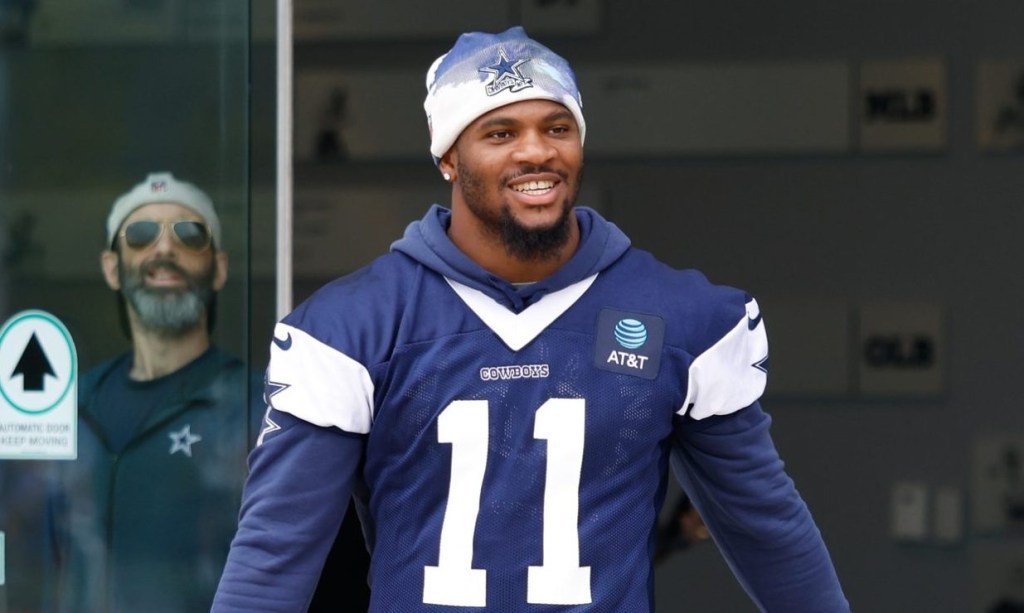
NFL training camps are opening this week with several lingering high-priced contract disputes and uncertainties between teams and players.
Cowboys defensive end Micah Parsons is entering his fifth season, set to earn $24 million in the final year of his rookie contract, which is far below market value for one of the best pass rushers in the league.
Parsons, 26, isn’t expected to hold out, as Dallas prepares for the 2025 season in Oxnard, Calif., as the franchise annually does. But if and when he does sign a new deal, he’s expected to become the highest-paid non-quarterback in the NFL—a mark that has been set anew by several players this offseason.
Last week, Steelers edge rusher T.J. Watt surpassed Bengals wide receiver Ja’Marr Chase ($40.25 million new-money average annual salary) by signing a three-year, $123 million contract with $108 million fully guaranteed, which has an average annual value of $41 million in new money.
A record deal for Parsons would give the Cowboys the highest-paid quarterback and non-quarterback in the NFL, as the four-year, $240 million extension Dak Prescott signed last year still carries the league’s highest average annual salary in new money at $60 million per year.
Cat Fight in Cincy?
The Bengals are dealing with two contract situations that could drag on through training camp and even into the season.
Cincinnati defensive end Trey Hendrickson is set to make $16 million this season, but he has said he won’t play without a new deal. Hendrickson, 30, isn’t expected to reset the market like Watt and Parsons, but is widely believed to be worthy of a much more lucrative salary this year.
Hendrickson’s contract situation has been a topic dating back to the NFL Scouting Combine in February, when Cincinnati director of player personnel Duke Tobin indicated the pass rusher’s new deal would come after extensions for Chase and fellow receiver Tee Higgins.
Meanwhile, rookie defensive end Shemar Stewart, the 17th pick in the 2025 NFL Draft, did not report to training camp over the weekend, and he remains the lone first-rounder not signed to his new team.
Stewart’s draft position slotted him into a four-year, $18.94 million contract, but he remains at an impasse with the Bengals over the team’s desire to include language that could void his guaranteed money under certain circumstances.
|
|
|
|

The Nationals have signed shortstop Eli Willits, the top pick in last week’s MLB draft, making history and saving significant money at the same time.
The club completed a deal with the 17-year-old Willits with a signing bonus of $8.2 million, well below the record $11.08 million slot value for the No. 1 pick, but still an unprecedented deal for a high-school player. The bonus just surpassed the $8.19 million bonus the Orioles gave Jackson Holliday three years ago, and may soon be topped by Holliday’s younger brother, Ethan, selected at No. 4 by the Rockies.
For now, though, Willits is the standard-bearer for a non-collegiate draft pick, extending a run of history as he’s the youngest No. 1 selection since Ken Griffey Jr. in 1987.
“I’ve set a goal to be in the big leagues by the time I’m 20, and that’s something I’m really excited to do,” Willits said in an introductory news conference.
While the slot values provide guidance for the signing bonuses, and there are penalties for extreme overspending beyond a team’s overall bonus pool, the deals are not entirely locked in like NFL and NBA rookie-level contracts. As a result, the Nationals, like other MLB teams, will be able to use the difference between the slot value for Willits and what he signed for on other deals.
Such a strategy unfolded in part as the Nationals also signed fourth-round pick Miguel Sime Jr. for $2 million, nearly triple the slot value of $687,800. Sime, a right-handed pitcher, will forgo a prior commitment to LSU.
The Nationals, still in the midst of a significant transition after the recent firing of president of baseball operations Mike Rizzo and manager Dave Martinez, stunned many observers by picking Willits. Many draft mocks pointed to the team choosing LSU pitcher Kade Anderson, who is represented by powerful agent Scott Boras. Willits, instead, is represented by WME Sports, now in the process of selling its baseball business. WME’s Bryan Minniti previously worked for Rizzo at the Nationals between 2010 and 2014.
Willits’s parents also signed the Nationals contract as he won’t turn 18 until December.
|
|
|
|
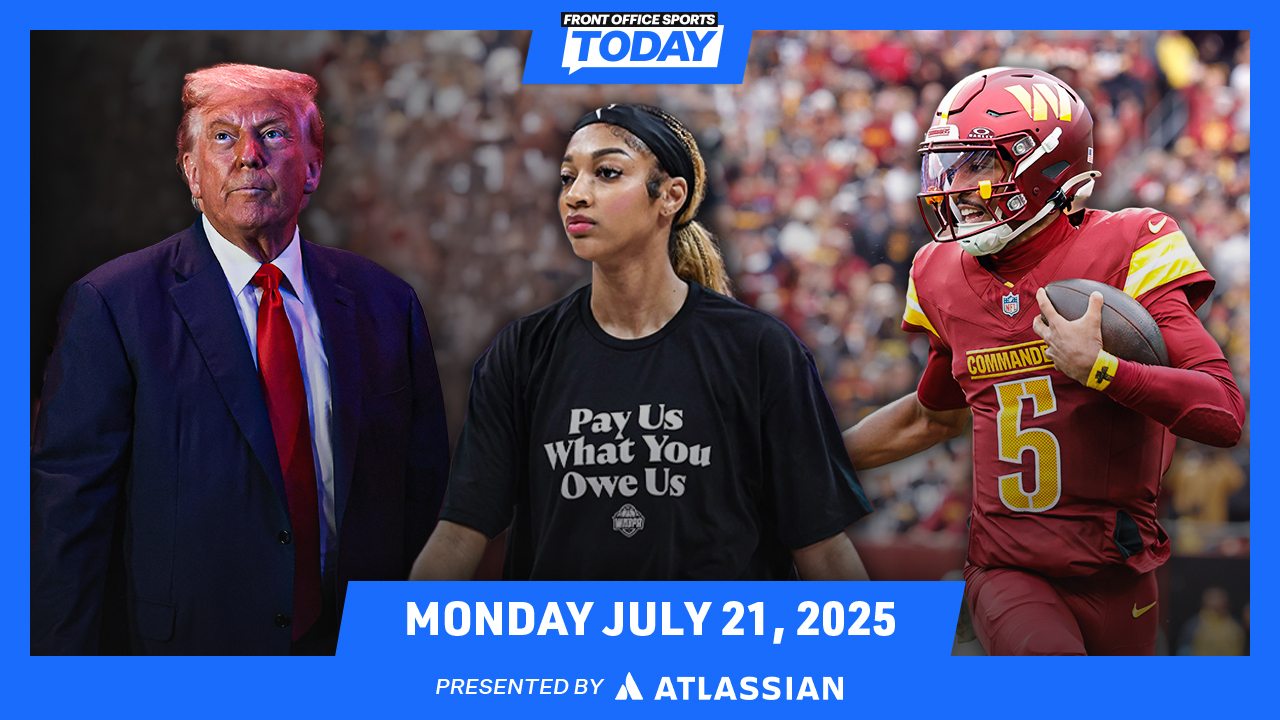
|
President Donald Trump posted Sunday that he would “put a restriction” on the Commanders and their proposed $3.8 billion stadium deal if they don’t revert to their prior name that was dropped in 2020 for its racial insensitivities. FOS newsletter writer Eric Fisher explains whether this is enforceable by the president and where Commanders owner Josh Harris goes from here as the stadium deal looms.
Plus, WNBA All-Star weekend sees great success even without Caitlin Clark—but player statements around labor talks and the CBA stole the show for the W’s coming-out party, says FOS reporter Colin Salao, who was on-site for the festivities.
Watch the full episode here.
|
|
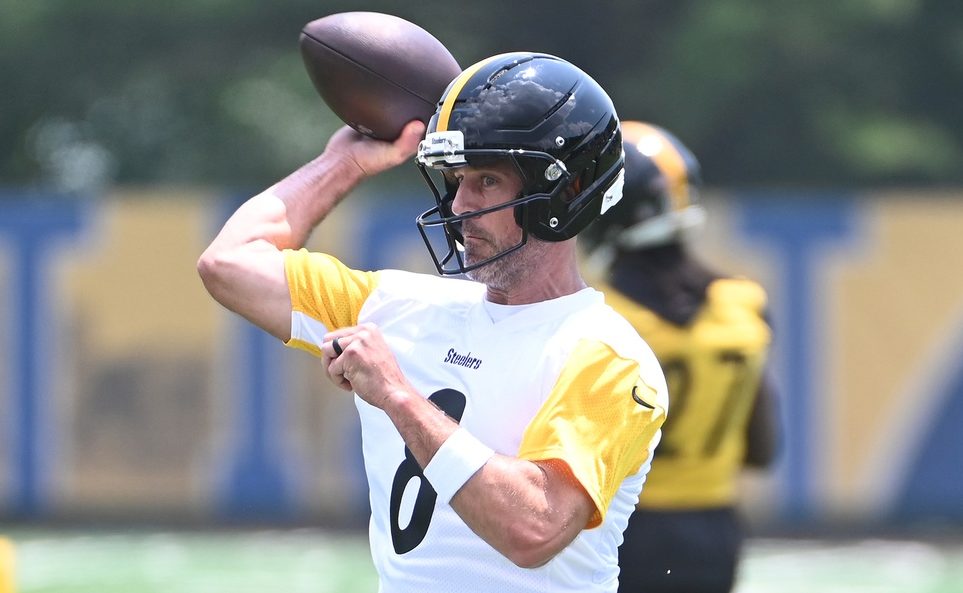
|
Throwback uniforms ⬆ The Steelers announced they will wear retro jerseys for their Week 8 matchup against the Packers, which will mark the first time Aaron Rodgers plays his former team with which he won Super Bowl XLV and four league MVPs. NFL franchises are allowed to wear alternate uniforms more times this season than they previously were.
Chris Gotterup ⬆ An impressive two-week stretch in the U.K. saw the 26-year-old American golfer nearly match his total career earnings prior to heading overseas. Gotterup made $2.7 million for winning the Scottish Open and finishing third at the Open Championship. Since turning pro in 2022, he had made $2.76 million through July 6. Beyond the prize money, Gotterup has also strengthened his case to U.S. Ryder Cup captain Keegan Bradley to be selected for the team in September.
WNBA CBA negotiations ⬇ The league and players’ union are at odds as its demands for increased salaries stand strong. If both sides cannot reach an agreement by the Oct. 31 deadline, a potential lockout is in play. It hasn’t happened in league history, but it came close in 2019 until an agreement to extend the deadline came through.
Athlete burglary ring ⬆⬇ Two men pleaded guilty in a federal case tied to athlete home robberies—a win for investigators, but serious concerns remain: More than 20 athletes were targeted while playing games, millions in luxury items have been stolen, and in cities like Minneapolis and Dallas, no suspects have been publicly identified. Read more from FOS reporter Margaret Fleming.
|
|
- Nike’s ad celebrating Scottie Scheffler’s win at The Open Championship followed up on his pre-tournament press conference last week, when he said chasing trophies was not a fulfilling life. Check it out.
- The vibes were high at the WNBA All-Star Game on Saturday night. Take a look.
- The “aura farming” boat dance, started by an 11-year-old in Indonesia, is taking over the sports world. Find out why.
|
|
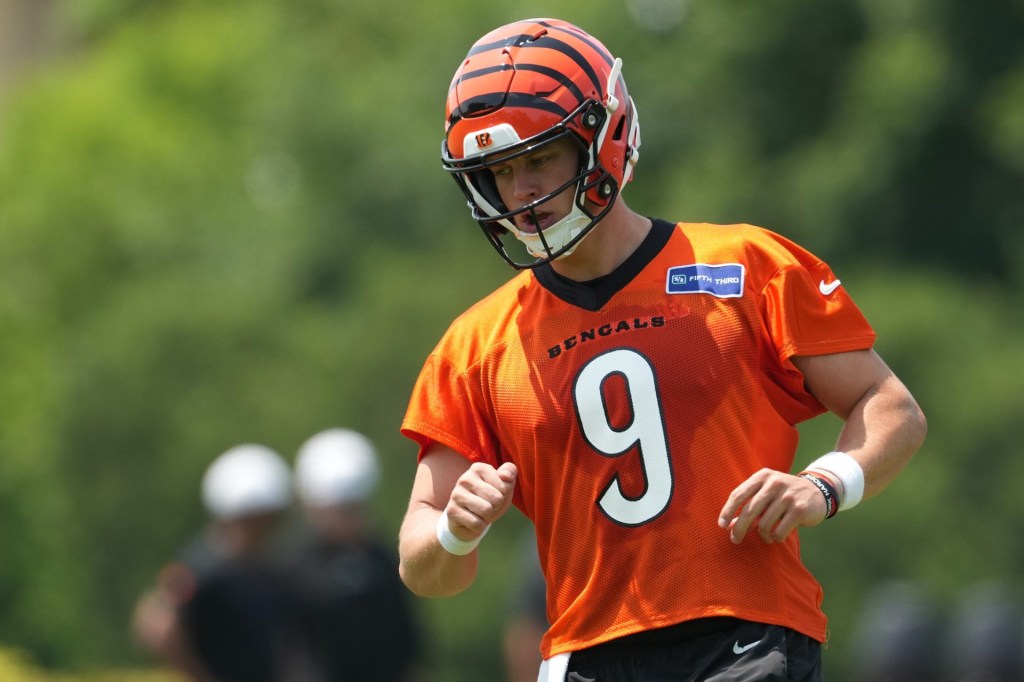 | They’re linked to a group charged with robbing several athletes’ homes. |
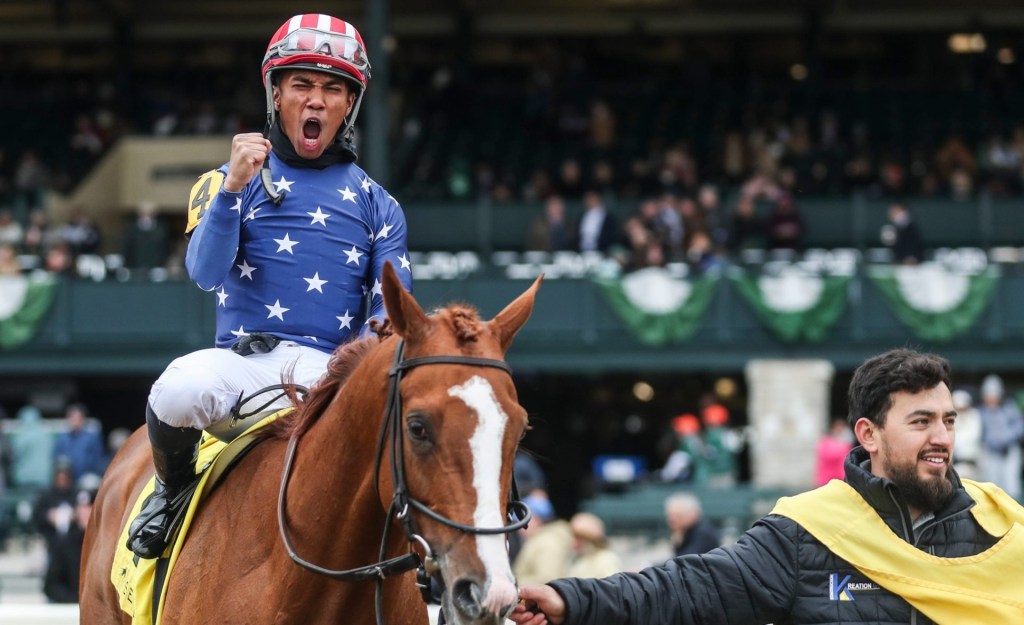 | Derivatives exchange QCX was recently licensed by the CFTC. |
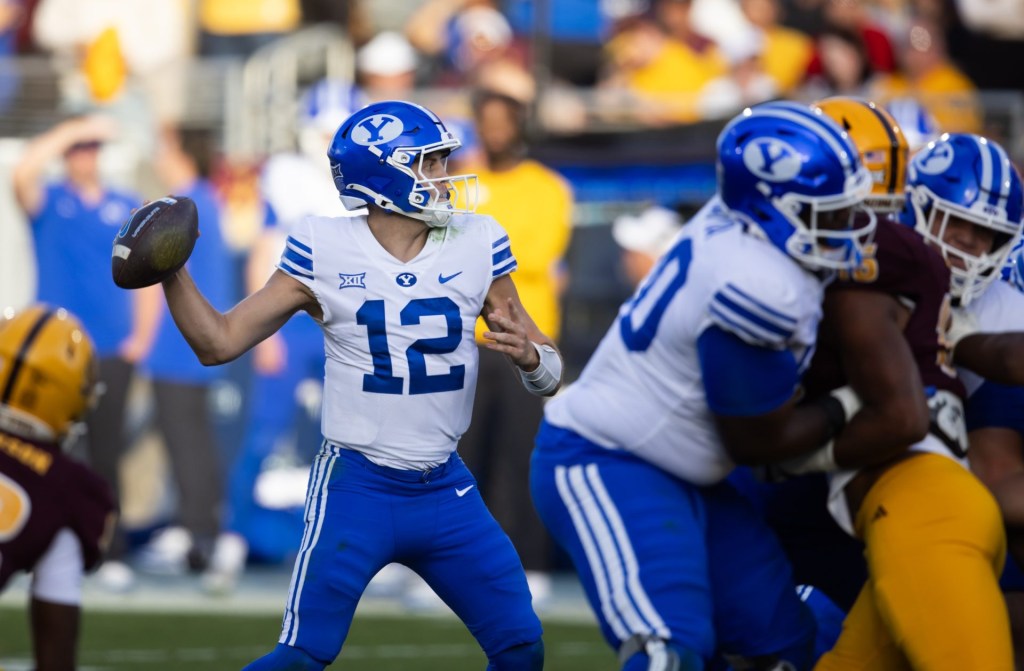 | He was facing a seven-game honor code suspension at BYU. |
|
|











